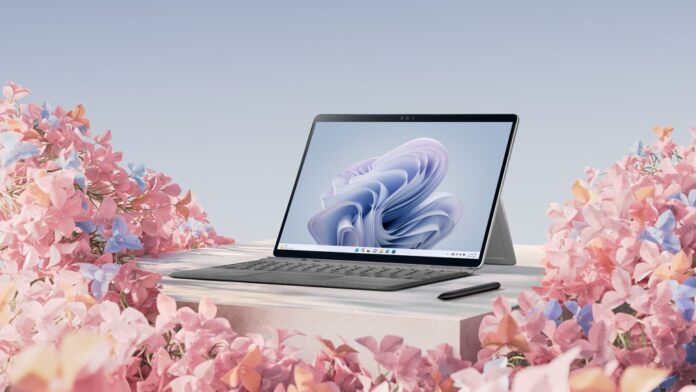Microsoft is poised to announce the launch of its latest hardware offerings, the Surface Pro 10 and Surface Laptop 6, on March 21, 2024. According to Windows Central, these devices represent the company's first foray into AI-integrated personal computing, carving a niche in the competitive landscape against giants like the iPad Pro and MacBook Pro. Engineered for unmatched performance and efficiency, these devices include upgraded OLED and ARM technology displays and processors, setting a precedent for future AI PCs. I first reported on these devices in December and it seems Microsoft is now ready to launch the hardware this month.
Enhanced Features and Specifications
The Surface Pro 10 inherits its design from the Surface Pro 9 but introduces a significant upgrade with an anti-reflective OLED screen, optimized for HDR content, promising unparalleled brightness and clarity. Additionally, it boasts a new ultrawide front-facing webcam, enhanced with AI Studio Effects, and an integrated NFC reader. The Surface Laptop 6, on the other hand, unveils a notable design evolution, featuring thinner display bezels, rounded corners, a haptic touchpad, a dedicated Copilot key, and a refreshed port selection — including two USB-C ports, one USB-A port, and the signature magnetic Surface Connect charger. These devices are powered by next-generation Intel Core Ultra and Qualcomm Snapdragon X Elite processors with advanced NPUs, designed to deliver significant performance and efficiency gains over their predecessors.
Innovations in AI Technology
The upcoming Windows 11 version 24H2 update will introduce a suite of AI features, poised to redefine user experiences on Microsoft devices. Among these is the debut of an “AI Explorer” feature, an advanced Copilot functionality, offering an unparalleled ability to search and organize data using natural language. Users can retrieve information from conversations, documents, web pages, and images based on contextually vague prompts, revolutionizing how digital information is accessed and managed. Additional elements include on-device Copilot functionality, real-time live captions and translations, video game upscaling, frame rate smoothing, and enhanced Windows Studio Effects.
These AI capabilities are expected to be rolled out with the next Windows 11 update scheduled for this fall, promising to enhance productivity and enrich the user experience with more intuitive, context-aware features. The introduction of these devices marks a significant milestone in Microsoft's commitment to innovation and its vision for the future of personal computing.
As anticipation builds for the March 21 announcement, the tech community eagerly awaits further details on these pioneering devices and the transformative features they promise to deliver. With this strategic move, Microsoft sets the stage for a new era of AI-driven computing, aligning hardware innovation with software advancements to redefine the landscape of personal and professional productivity tools.






